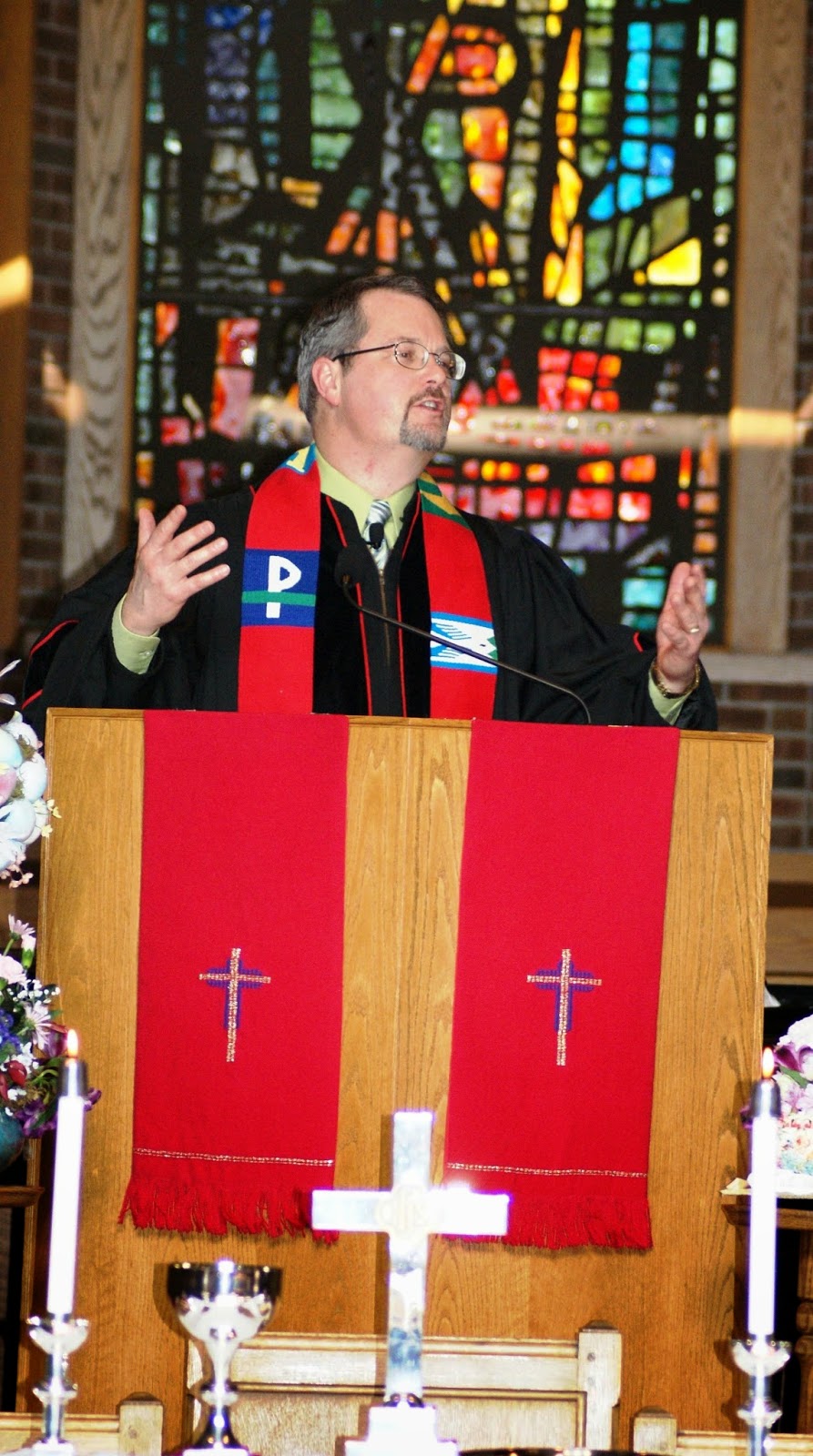Word AND Sacrament
I am a pastor within a denomination that sees itself as being “Table-Centered.” That is, we have made weekly communion a hallmark of our life together. Many other Protestant traditions could be considered “Word-Centered,” since they feature weekly readings from Scripture and a sermon, but not a time gathering at the Table (except perhaps monthly or quarterly). In part this is due to a Zwinglian desire to stand separate from the Roman Catholic focus on the Mass. [The Eucharist: Encounters with Jesus at the Table].
My question is this – if we consider ourselves to be Table-centered, does that mean we can downplay the importance of the Ministry of the Word? That is, can we just go to Communion without hearing the Scriptures read and the Word proclaimed? I occasionally hear people in Disciples circles, including members of the congregations I’ve served, saying Communion is central to their spiritual life, but that they really don’t need the sermon. Now granted the sermon might not speak to everyone at every service, but that’s not the point here. My question has to do with the connection between Word and Sacrament, and whether one can truly draw spiritual sustenance from the sacrament without the Word? I’m not sure that the Sacrament can spiritually nourish without some attention to the Word, not necessarily a sermon, but at least the reading of Scripture.
When I share at the Table and give the invitation I try to connect what we’ve heard in the Ministry of the Word to what we’re doing at the Table. I’ve also been writing post-communion prayers, which we share in unison to close the time at the Table, and I connect them with the theme of the Word. My point being that the Ministry of the Word provides theological substance to our communing with God at the Table.
I think this is especially important for congregations that provide for an open table, as we do. We make no distinctions about who comes to the Table, but my hope is that when we spend time at the Table, we have something to take with us into our meditation on the bread and cup.
Here I would like to draw upon Karl Barth’s idea of the three-fold Word of God, a concept that suggests that the Word comes to us enfleshed (Jesus), in Scripture, and in Proclamation. The sermon is Word of God when it is rooted in Scripture, and points us to Jesus. That is the premise I take up in my little book The Authority of Scripture in a Postmodern Age: Some Help from Karl Barth. The reading of Scripture and the Word proclaimed serve to point us to the Jesus we encounter at the Table. Without these two elements, who will the Word Incarnate be named and encountered?

Comments
In answer to your question, Bob, I believe Jesus answered this question during his temptation -of course, the bread is also the Word... Hmm, I seemed to have muddled this more.
It is a good question -- about the horizontal dimension. We have made communion a rather individualistic affair. But then, our Enlightenment heritage of individualism contributes to this. Our American culture of privatized religion doesn't help either.
While I prize the Disciple commitment to frequent communion, I'm not really sure we do it well. But then that may be the Anglican in me speaking!!